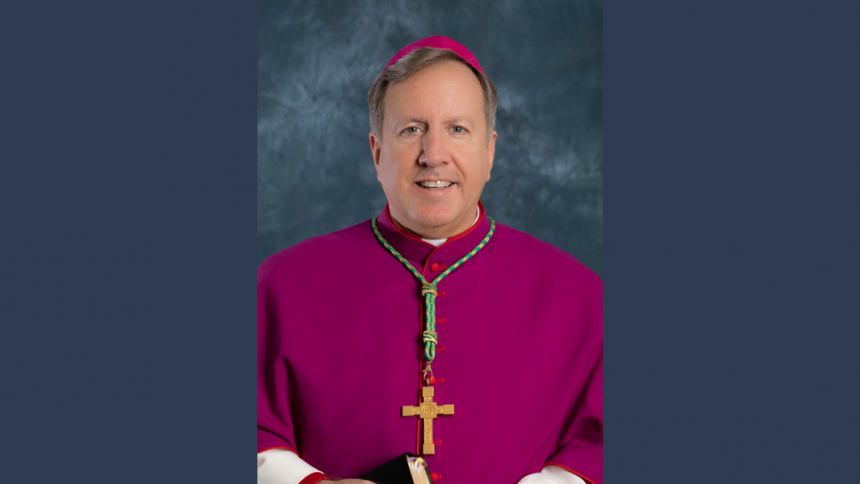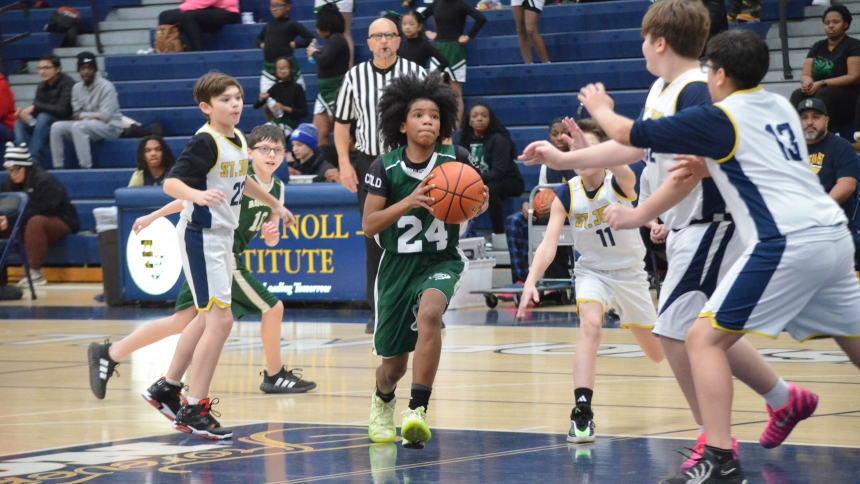
There are no virtual sacraments. We can’t anoint someone over the phone. We can’t impose Chrism and confirm someone during a Facebook live session. And we can’t receive the Eucharist over a zoom call.
That’s why this past year was so difficult. During the time of our COVID-19 “shut down” last year, which lasted for ten weeks, we needed to stay home. As a local church we worked hard to make sure the sacraments were still available, but they were much more limited, and we didn’t gather for public worship at Mass. There were good reasons for this. In prior times of pandemic, the church has had to make adaptations to prevent the spread of contagion. Still, this time was very painful.
During these days, we revived a very pious spiritual custom – that of a “spiritual communion.” A spiritual communion is a prayer through which Jesus gives us the graces we would have received if we were able to receive His Body and Blood at Mass. It’s a good custom. This prayer is still necessary for many of our home bound Catholics and those who live in parts of the world where access to the sacraments is limited due to persecution or a lack of priests. But it is not the same as receiving our Lord in the Eucharist.
The Eucharist is not just a remembrance of what Jesus did at the Last Supper (though it is that, too). The Eucharist IS the Body and Blood of Our Lord. How do we know that? Because Jesus told us, “This is my body, this is my blood.” He explained this in his Bread of Life discourse in the Gospel of John. Saint Paul reaffirmed this truth in his New Testament writings. The early church accepted this truth without doubt. There is no evidence of any controversy over this truth in the early church in any of the contemporaneous writings.
The expression is “absence makes the heart grow fonder.” I pray that the eucharistic absence over the past year will make us appreciate all the more the importance and centrality of the Eucharist. We are spiritually hungry, and the Lord wants to feed us. We need hope, and the Lord wants to draw us together in church and nourish us.
This weekend we celebrate the feast that reminds us of the centrality of the Eucharist: Corpus Christi (The Solemnity of the Most Holy Body and Blood of Christ). This specific feast traces its origins back to Orvieto, Italy. A Eucharistic miracle occurred near there in 1263, which reaffirmed the real presence: the reality that in the Eucharist what appears to be bread and wine have become the body and blood of Christ. The following year Pope Urban IV instituted this feast day for the entire church. In Orvieto and around the world, the custom has arisen of having a public procession of the Blessed Sacrament as a testimony of our faith and a means of adoring our Lord.
Now is the season to reignite our love for the Eucharist and to invite others to join in. After a year unlike any other, I pray that this weekend will mark a greater return to the love of our Lord Jesus in the Eucharist. May the Lord deepen our appreciation for the great gift he has given us: His very Body and Blood.
Your servant,
The Most Reverend Robert J. McClory
Bishop
Diocese of Gary


